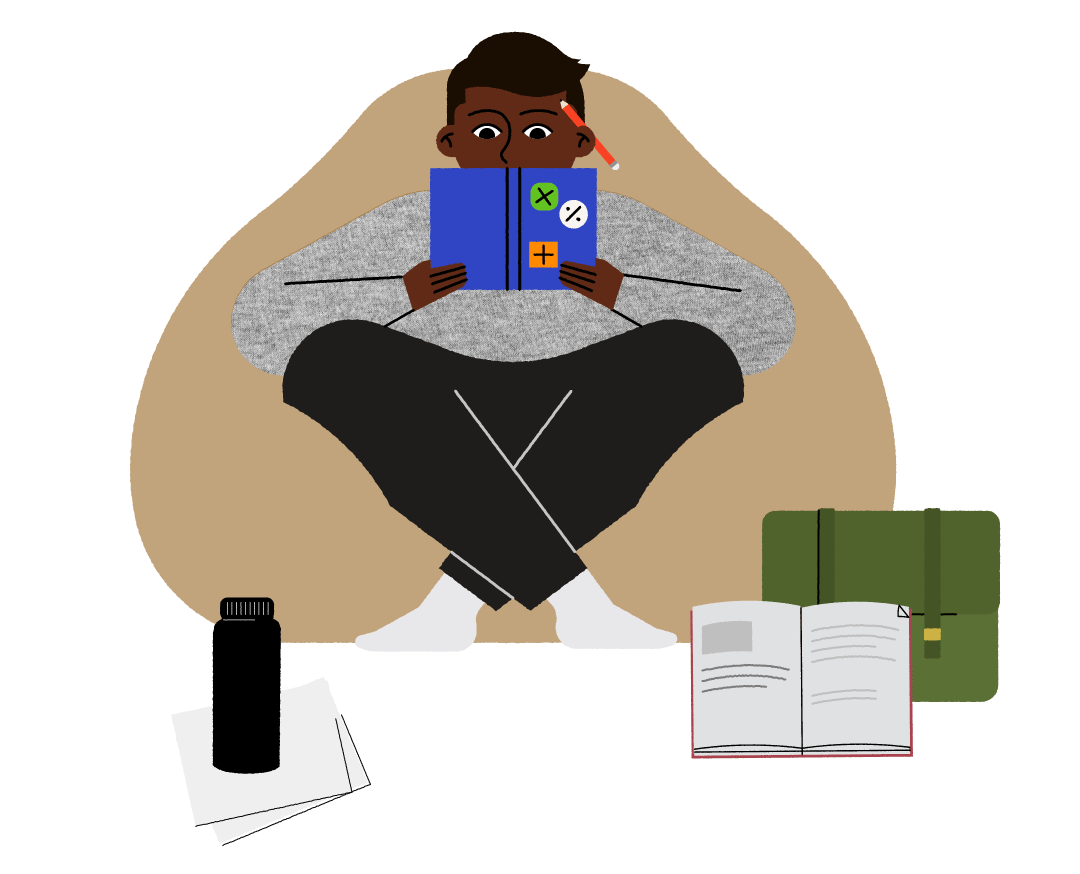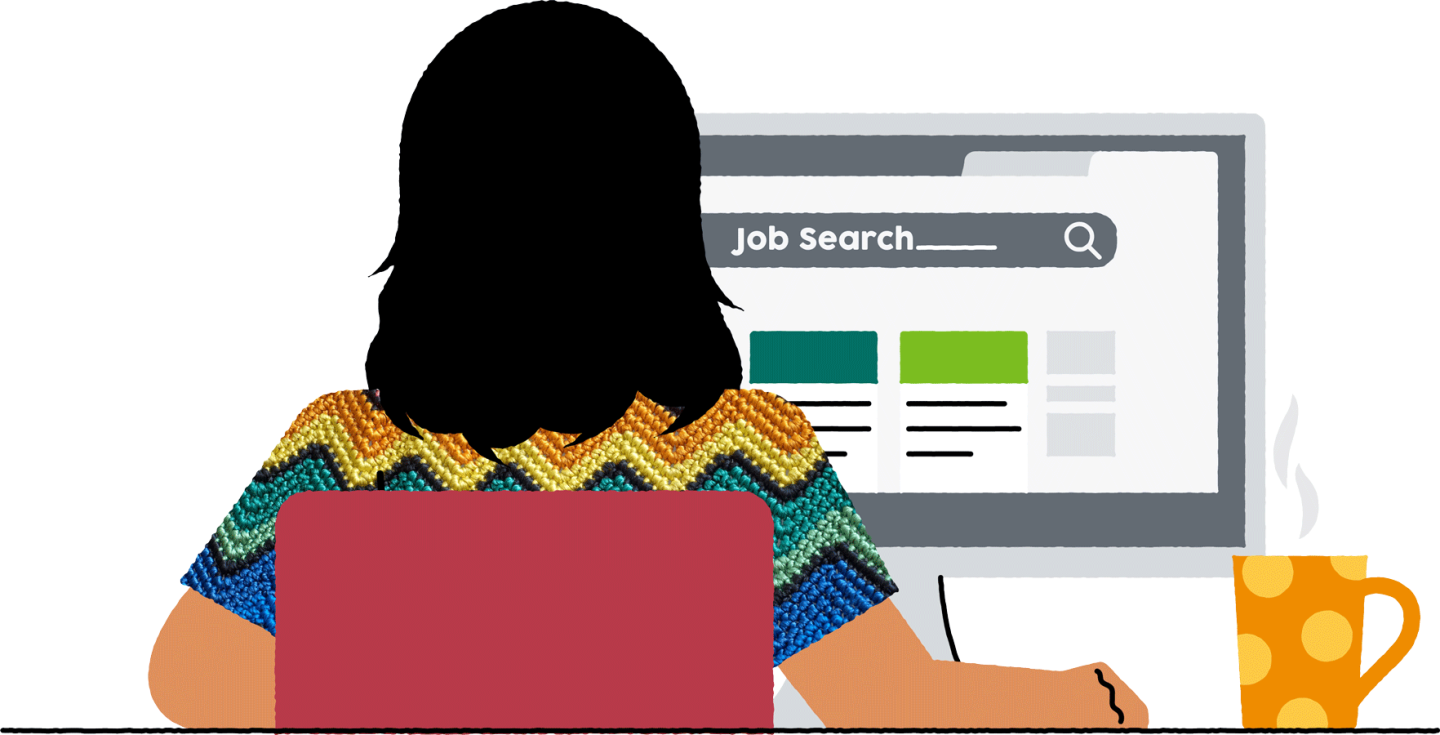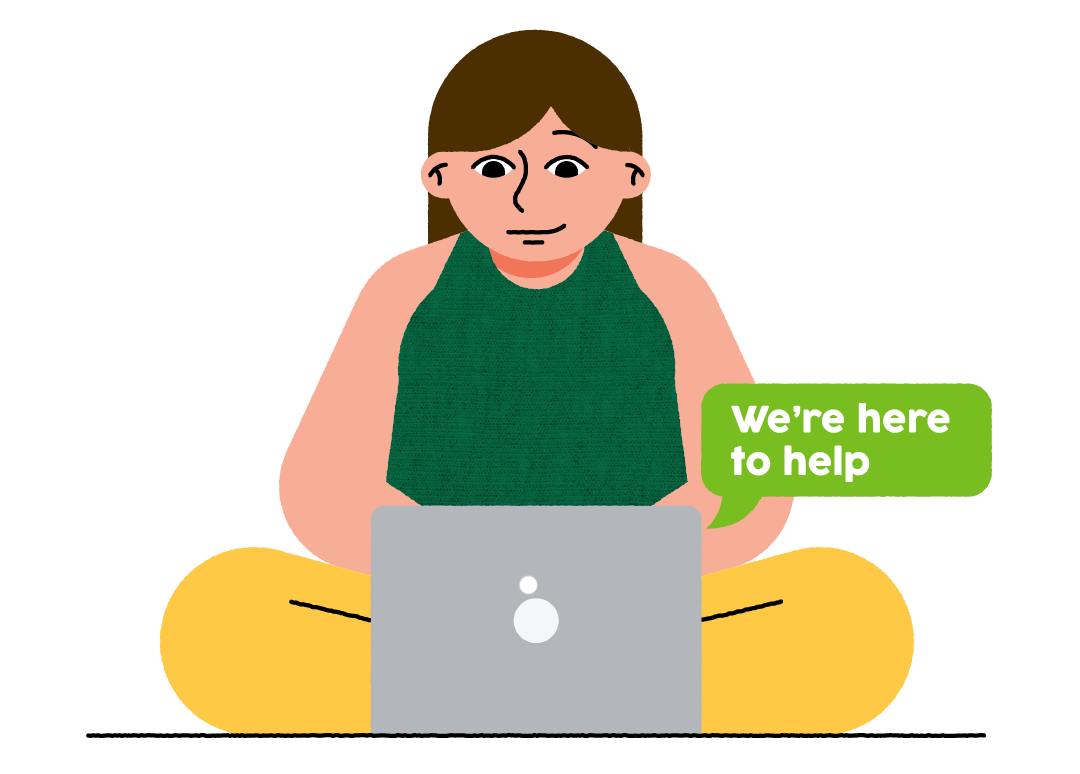Whether you’re struggling to get out of bed or having a tough time in other ways, we’re here for you. You don’t have to wait until you feel ‘ready’ to get involved in work or study, we can support you wherever you’re at.
Studies have shown that young people experiencing mental health difficulties can often work if they are given the support they need. And although returning to work and study may have its challenges, research suggests that it is likely to improve your progress towards good mental health and wellbeing.
Download our fact sheet on the mental health benefits of work and study
(PDF 1.2 MB)
Mental health benefits of work and study
There are lots of reasons why we might stop or find it hard to start working or studying, such as:
- feeling inexperienced or unprepared to enter the workforce or to go to university or TAFE
- having had a negative experience in the past
- experiencing mental health difficulties or stress in your personal life
- having other responsibilities such as caring for someone else
- having a disability or physical health concerns
- COVID-19 impacts
- being unsure of where to start or what options are available
- time off school or lack of any career advice at school
Studies have shown that the longer you are not working or studying, the harder it can be to get back into it. Sometimes we face tough times or things happen that impact our confidence or ability to work or study. When this happens it's easy to withdraw or get stuck in a rut that feels hard to get out of.
On the other hand, working or studying can play a really positive role in our lives. It can help you feel more confident, empowered and connected. It’s about building a routine, setting yourself goals and working to achieve them. Getting into work and study can be the best thing you do for your wellbeing.
Here are some examples of how work and study can help you to build your confidence and even give you a boost in other areas of life. If you’re finding it hard to get into work or study remembering these things might help you stay motivated.
Keep learning new skills
Through working or studying, you can build an understanding of your strengths and values, learn skills to help you negotiate, problem solve and communicate. Work and study can also help you to develop skills that are useful in other areas of your life, such as managing stress, anxiety, and difficult situations.
Build confidence and self-esteem
Through work and study, you can develop skills, practise strategies that support good mental health, and grow your confidence in new and challenging situations or environments. Learning new skills and overcoming challenges can build a sense of accomplishment as well as confidence and self-esteem in all areas of your life.
Making connections
Working or studying can help you stay connected with people, places, and routines. Being connected with others can help you overcome challenges and see things from a new perspective. Getting into work or study is a great way to meet like-minded people who may even have similar interests and passions. With time, you can often build a group of people who care about you, and you will learn a lot along the way.
Learn how to cope through tough times
Any skill can be learned through practice, and resilience is no different. Feeling confident and knowing how to manage setbacks can have a positive impact on your mental health and wellbeing. You can build resilience by coping and learning from tough times. What you learn you can often take into other parts of your life, not just work.
Make it matter
Work and study can give us a structured and routine environment, which can really help you stay motivated and engaged, and something to feel proud of. Motivating yourself is hard! But working towards something that really matters to you can be really empowering and inspiring. We suggest taking some time to consider your values and why they matter to you – then doing the same with your company’s values. A job or study environment will often feel more ‘right’ when these values align and it's easier to connect your purpose to your work.
What to expect from work and study support services
Navigating your career journey can be tricky and there is no shame in asking for help or advice. There are so many options to consider and so many pathways you can take, so where do you start? Here are some things you can expect from most Work and Study support programs:
1. support and advice on everything from study and education options, job hunting and career exploration
2. support looking for and applying for jobs (including writing a resume and cover letter)
3. preparing for a job interview
4. exploring your study options and support enrolling into study
5. understanding your rights at work
6. support balancing your mental health and wellbeing with work or study
7. working alongside your mental health worker to ensure you feel fully supported
Some people rely on informal networks (such as family and friends) to provide guidance and advice on how to start or improve their work and study situation. Another option is formal supports (such as Employment Service Providers or the headspace Work & Study service), which you can use in addition to, or separate to informal supports.
You might also like to check out other employment services and supports. If you are receiving income support you may also be eligible for personalised support with Workforce Australia Services.
What are reasonable adjustments or accommodations at work or study?
If you are having a tough time at work, or you have a physical injury, workplaces can often make 'adjustments' or 'accommodations' so that you are supported to continue to do your job well. These adjustments can be requested for temporary situations like injuries, illnesses, or challenging life circumstances, as well as for individuals with ongoing disabilities, mental illnesses, or chronic diseases that may affect their ability to work.
Employers have a responsibility to make reasonable adjustments to the workplace so that an employee can do their job well. This responsibility is included in the Disability Discrimination Act 1992, which means it’s required by law. Adjustments should respond to the particular needs or concerns of the individual. Examples of adjustments could include making changes to the workplace, flexible start or finish times, options to work from home where possible, modifying equipment or providing extra training.
Deciding to approach your employer or study provider about reasonable adjustments can be hard, and you may feel worried about how they will respond. You could check out this resource on managing your mental health in the workplace for some pros and cons to disclosing, and more info on employer and employee responsibilities regarding adjustments.
Not sure if you’re ready to receive support?
Receiving work and study support can complement all the hard work you might be putting in around your mental health and can be a really important part of your journey. If you’re still not sure, here are some words of inspiration from other young people who have used the headspace Work & Study Online service.
‘It was really helpful to have both [supports]. I started out with work and study support and when we realised I also needed other support we teamed up with mental health [support]. [We] all worked together towards my goals in study, future work, and mental health issues including anxiety and depression inside and outside of the learning/workplaces. Having both teams meant I didn’t have to drop one area to focus on another and in a way where having both wasn’t ever overwhelming.’ – Young person from headspace Work & Study Online.
‘If you start and it turns out to be not the right time, you can always pause and start again a better time.’ - Young person from headspace Work & Study Online.
‘Instead of doing it one day, make this day one of working towards your goals’ – Young person from headspace Work & Study Online.
‘Don’t hesitate in waiting to be at a specific stage of readiness. The team started with me from what I felt was rock bottom for me and within 3 months I made progress I never thought I would. I went on to continue doing these things because I had a team that did and still does believe in me and what I want to do.’ – Young person from headspace Work & Study Online.
Get support
If you're aged 15 - 25 the headspace Work & Study programs are tailored to your needs and can support you in developing the skills and confidence to reach your work or study goals. It’s totally free and we have options for you to participate online via webchat, video chat or phone, as well as face to face at over 50 of our headspace centres.
Find out more to help you decide which Work & Study service best suits your needs. If you’re not sure and would like to discuss your options, give us a call on 1800 810 794.
For support with your mental health and wellbeing, find your nearest headspace centre or access online and telephone support via eheadspace.
The headspace Clinical Reference Group oversee and approve clinical resources made available on this website.
Last reviewed June 2023.
Arruda, W. (2019, Aug 13). How To Connect With Your Company's Purpose And Values. Forbes. How To Connect With Your Company's Purpose And Values (forbes.com)
Australian Human Rights Commission. (n.d). Reasonable Adjustments. Reasonable Adjustments | Australian Human Rights Commission
Australian Federation of Disability Organisations. (n.d) What are Reasonable Adjustments? What are Reasonable Adjustments? | Australian Federation of Disability Organisations (afdo.org.au)
Cassidy, N. Chan, I. Gao, A. Penrose, G. (2020, December). Long-term Unemployment in Australia. Reserve Bank of Australia. Long-term Unemployment in Australia | Bulletin – December 2020 | RBA
Craig, H. (2019, Jan 16). Resilience in the Workplace: How to Be Resilient at Work. Positive Psychology. Resilience in the Workplace: How to Be Resilient at Work (positivepsychology.com)
Cross, R. Dillon, K. Greenberg, D. (2021, Jan 29). The Secret to Building Resilience. Harvard Business Review. The Secret to Building Resilience (hbr.org)
Fishbach, A. (2018, Nov-Dec). How to Keep Working When You’re Just Not Feeling It. Harvard Business Review. How to Keep Working When You’re Just Not Feeling It (hbr.org)https://hbr.org/2018/11/how-to-keep-working-when-youre-just-not-feeling-it
Health Direct. (Last reviewed: October 2021). Building resilience. Building resilience | healthdirect
Thomas, M. Vandenbroek, P. Employment—Measuring and improving outcomes for young Australians. Parliament of Australia. Employment—Measuring and improving outcomes for young Australians – Parliament of Australia (aph.gov.au)
Scanlan, F. Purcell, R. (n.d). Vocational Interventions for Young People with Mental Ill-Health. Orygen. Vocational interventions for young people with mental Ill-health - Orygen, Revolution in Mind
Get professional support
If you feel you need help there are a range of ways we can support you.


